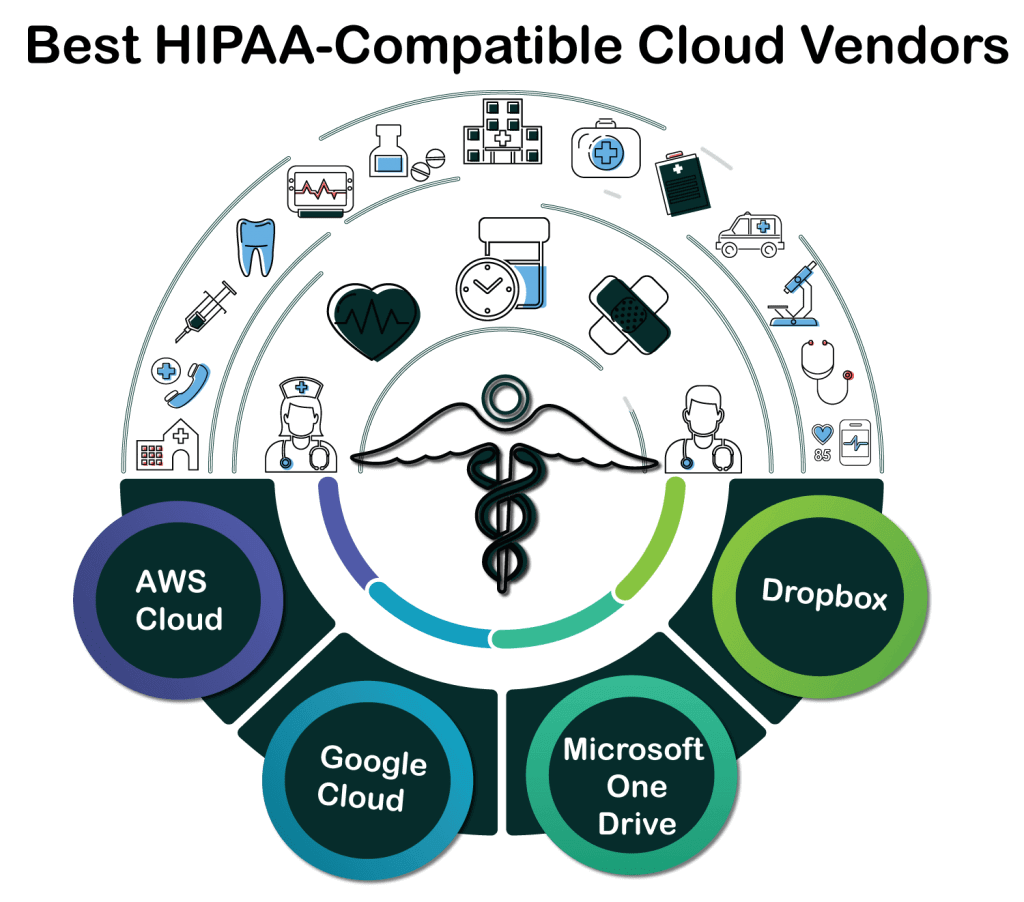Top 5 Reasons Why HIPAA Compliance is Necessary for Telehealth
As the Telehealth industry has grown dramatically in the past year, so are the needs to apply HIPAA-compliant video systems and procedures. But why is HIPAA compliance important for telehealth?
HIPAA compliance can be violated in a variety of ways. When it comes to HIPAA video compliance, providers need to ensure that all parties involved follow the best HIPAA practices.
But Before we get into the nitty-gritty of HIPAA and telehealth, let’s go back in time and see why the Health Insurance Portability and Accountability Act, or HIPAA, was created in the first place.
Read More: Training For Telehealth: How Hospitals Can Prepare For Telemedicine?
HIPAA: The Back Story
Before 1966, anyone with a vested interest could access medical health information. Assume there is a large corporation with a large number of employees. During those days, it was not difficult for a company to gain access to their employees’ medical records.
Companies used to get regular reports on their employees’ health insurance coverage. Patients, on the other hand, did not always have access to their medical records. There was an issue with this. At the time, the only way to keep your health information safe was to not have it at all, which prevented people from receiving the care they required.
This essential issue of patient data privacy and security prompted the need for regulation and robust rules. As a response, lawmakers enacted HIPAA in 1966 to ensure that patients’ personal information is kept private and secure.
What information is covered under HIPAA?
Patient Health Information (PHI) is anything that connects the patient to the practitioner, and HIPAA protects all PHI.
Some of the primary medical information that is protected under HIPAA and telehealth compliance include:
- Patient’s name (full name, first name, or last name)
- Patient’s location (including permanent and residential address)
- Key dates related to the patient
- Patients contact details i.e Phone number, Fax Number, and Email address
- Patient’s social security number
- Patient’s medical record number
- Patient’s health insurance beneficiary number
- Patients bank details i.e Account number
- Patient’s certificate or license number
- Device identifiers and serial numbers
- Patient’s distinctive, measurable characteristics like as fingerprints, retinal scans, and voiceprints
- Full face photographic images
- Any number, characteristic, or code that is given to the patient as a unique identifier
If the data providers use and store includes any of the above, then it will be considered under PHI.
HIPAA and telehealth platform hinges on the confidentiality of patient information, particularly electronic patient health information (EPHI). A startlingly large amount of data breach reports are initiated by the theft or loss of data in a mobile form. As a result, the bulk of mobile security protection approaches concentrates on mobile device physical security, logical access control, and encryption of all sensitive data on the device.
Now that you have a clear understanding of what HIPAA is and why it is so important, let’s speak about why HIPAA compliance is vital in Telehealth.
1. Unencrypted unsecured platform exposes protected health information
When protected health information (PHI) is sent over an insecure network, the chance of your patient’s information slipping into the wrong hand’s increases. This could be accidental or deliberate. Hackers can acquire access to information using unencrypted platforms. Patients who are accustomed to communicating with providers in an unprotected manner, such as text messaging, are more vulnerable to phishing scams.
2. HIPAA Compliance telehealth platforms offer more than just data security
Once you have a secure, HIPAA-compliant telemedicine system, you may use it for more than simply routine patient checkups. Telehealth can be used within your hospital to check on patients without forcing them to reenter their rooms, which protects personal protection equipment.
Virtual follow-up treatment is available to patients, allowing them to continue their recovery at home. Patients can receive telehealth consultations from the comfort of their own homes, minimizing the risk of infection that comes with leaving the house and visiting a doctor’s office. It also suggests that clinicians are not at risk of getting exposed while treating patients.
Read More: Telemedicine Integration With Hospital EMRs
3. Custom HIPAA Compliance telehealth solutions make healthcare delivery error-proof
Telehealth can be delivered via a variety of platforms. However, not all of them were created with healthcare in mind. These solutions are ideal for one-time circumstances, such as video conferencing with a patient.
However, you’ll run into issues if you try to include them in your operations. These concerns do not exist in platforms created expressly for the healthcare industry. They blend in better with your operations and can be employed for a wide range of jobs. Secure systems can also be used to send patient data, making it simple to communicate with your team.
4. HIPAA Compliance telehealth promises quality care to patients in remote locations
According to a recent survey, many doctors are still apprehensive about the quality of treatment they can give through telehealth. Clinicians are cautious to employ telehealth for a variety of reasons, including security, privacy, and funding.
A reliable, HIPAA-compliant telemedicine solution can help alleviate these worries while also broadening your practice’s reach. HIPAA compliant telehealth platforms are robust and secure. They build trust among remote patients about the quality of care and privacy of their medical records.
5. HIPAA Compliance and telemedicine help standardize healthcare for everyone
Healthcare quality and delivery are not of the same standard all over the globe. Especially in developing and underdeveloped economies, not everybody has access to quality care. HIPAA and telemedicine can be a great boon in this regard. They can ensure that healthcare is not merely accessible but it is of the highest standard.
Best HIPAA-compatible cloud vendors

Choosing the right cloud service providers is an important step in any provider’s HIPAA compliance journey. To make your task easier, we have put together the list of best cloud vendors for a frictionless HIPAA-compliant telehealth solution.
AWS Cloud
The service complies with all HIPAA compliant software and other healthcare data security laws. You must first accept the AWS Business Associate Addendum before you may use AWS Business Associate (AWS BAA).
Dropbox
Dropbox complies with all HIPAA requirements for enterprises that deal with protected entities. Providers may easily comply with HIPAA thanks to the cloud service’s detailed documentation.
Google Cloud
Google Cloud Platform is HIPAA-compliant. The Security Rule, Privacy Rule, and Breach Notification Rule are all required under HIPAA. The cloud storage service offers details on the best security practices, standards, and several additional tools for securing electronic health records.
Microsoft OneDrive
Microsoft makes it easy for clients to comply with HIPAA and the HITECH Act, and it follows HIPAA’s Security Rule standards. Many of its cloud services, like OneDrive, can be used without violating HIPAA guidelines on telemedicine.
Wrapping Up
Telehealth is without any doubt the future of healthcare. It gets rid of some of the key obstacles that prevent quality healthcare from reaching the patients who need them the most.
However, HIPAA compliance is a necessity for telehealth solutions. It ensures sensitive personal and health information remains secure at every level of the healthcare ecosystem including providers, insurers, and business associates
We hope this blog offered all the information you needed to know why is HIPAA important. With our cutting-edge HIPAA-compliant telehealth solution, VCDoctor helps providers like you foster exceptional trust among remote and in-person patients. For more information, contact our experts now.
We hope this blog offered all the information you needed to know why is HIPAA important.




